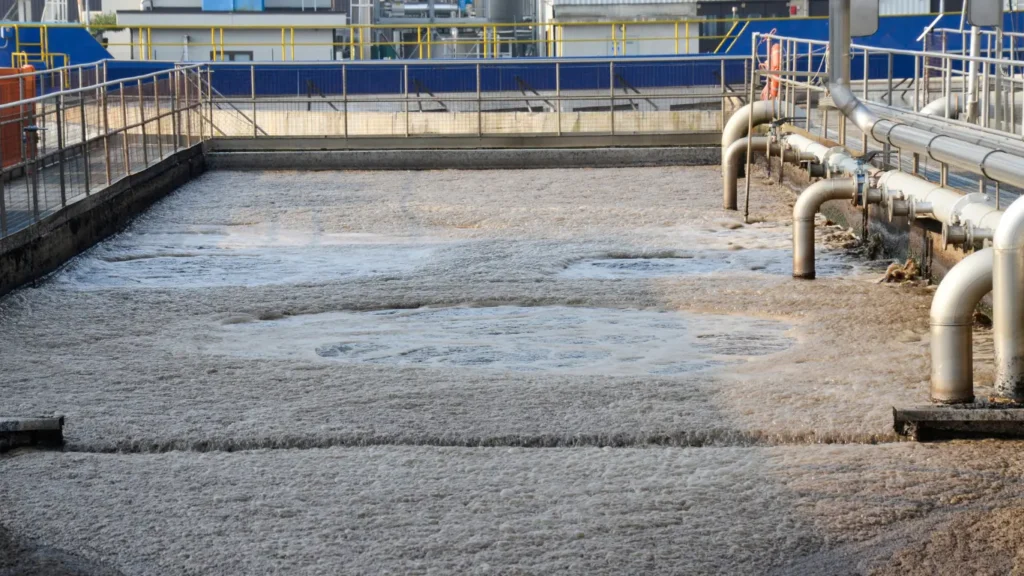Introduction
The increasing global water shortage is a cause for alarm, with a greater than ever need for sustainable and effective water treatment technologies. Zero Liquid Discharge (ZLD) has emerged as a comprehensive startegy to address this issue. ZLD aims to minimize water wastage and maximize water recovery, making it an essential component of sustainable water management. In this blog, we will read about the concept of how Scaleban can help you with Zero Liquid Discharge (ZLD) and explore some of the innovative filtration techniques revolutionizing water treatment.
The Growing Need for Innovative Water Treatment Techniques:
The increase in global population, industrial expansion, and environmental challenges have led to a growing need for innovative water treatment techniques. Freshwater resources are under strain from pollution, overuse, and climate change, making traditional treatment methods insufficient. Innovations are essential to address these issues, ensuring a sustainable supply of clean water. Scaleban ensures from advanced filtration techniques to eco-friendly desalination methods, innovative water treatment is critical to meet the demands of a thirsty world. As water scarcity becomes an increasingly pressing concern, the development and adoption of cutting-edge technologies are paramount to safeguarding our most precious resource for future generations.
In the context of ZLD, Scaleban brings you innovative filtration techniques that have emerged as key components of sustainable water treatment. These methods go beyond traditional filtration and offer highly efficient ways to remove contaminants and impurities from water. One such groundbreaking method is Glass Media Filtration.
Contact us now to experience innovative wastewater treatment !
Understanding Glass Media Filtration
Glass Media Filtration represents an advanced water treatment technology that employs recycled crushed glass as a filtering medium. This sustainable approach not only ensures efficient purification but also contributes to waste glass recycling. By passing water through a bed of glass media, it effectively traps suspended solids, microorganisms, and impurities. The uniform size and shape of glass media allow for exceptional filtration efficiency, even removing submicron particles up to 5 micron. At Scaleban, we ensure this method enhances water quality, maintains a low environmental footprint, and has applications in industrial wastewater treatment, brine concentrate processing, cooling tower water filtration, and municipal water treatment, making it a significant player in modern water treatment solutions.

The Advantages of Glass Media Filtration with Scaleban
Exceptional Filtration Efficiency:
Glass media possesses a uniform shape and size, resulting in a high filtration efficiency. This means it can effectively remove even submicron particles, making it suitable for treating water with various contaminants.
Sustainable Use of Waste Glass:
Recycling waste glass reduces the strain on landfill sites and conserves natural resources. By repurposing glass into a filtration medium, Glass Media Filtration contributes to a circular economy and minimizes environmental impact.
Contact us now to experience innovative wastewater treatment !
Improved Water Quality:
Glass media filtration ensures that the treated water meets strict quality standards. It removes not only particulate matter but also biological contaminants, resulting in safe and clean water.
Low Maintenance Requirements:
Glass media filters are easy to maintain, and their long lifespan minimizes operational costs. This makes them a cost-effective and sustainable choice for water treatment facilities.
Applications of Glass Media Filtration in ZLD
Zero Liquid Discharge systems are designed to recover nearly all the water used in various industrial processes, making them an excellent choice for reducing water wastage. Glass Media Filtration plays a crucial role in achieving this goal by removing impurities and contaminants from the water. Here are some key applications:
Industrial Wastewater Treatment:
Industries that generate large volumes of wastewater can use Glass Media Filtration as a pre-treatment step before subjecting the water to advanced ZLD processes. This ensures that the water entering the ZLD system is free from particulate matter, which can damage equipment and reduce efficiency.
Brine Concentrate Treatment:
ZLD systems often produce brine concentrate, a highly saline and concentrated solution. Glass Media Filtration can be used to remove impurities and solid particles from the brine, making it more manageable for subsequent processing.
Cooling Tower Water Filtration:
Glass Media Filtration is employed in cooling tower water systems to maintain the efficiency of heat exchange. By removing suspended solids and contaminants, it prevents fouling and corrosion, prolonging the life of the equipment and conserving water.
Municipal Water Treatment:
Glass Media Filtration can also find applications in municipal water treatment plants, ensuring the delivery of clean and safe drinking water to communities while minimizing water loss.
The Role of Glass Media Filtration in SDG 6
Glass Media Filtration plays an important role in advancing Sustainable Development Goal 6 (SDG 6) by providing efficient water treatment solutions. SDG 6 focuses on clean water and sanitation for all. This innovative technology ensures the availability of safe and clean drinking water, promotes sustainable wastewater treatment, enhances water use efficiency, reduces water pollution, and contributes to economic and environmental sustainability. Glass Media Filtration’s ability to remove contaminants and promote water recycling aligns with the global commitment to achieving universal access to clean water and improving sanitation worldwide.
Conclusion
Innovative filtration techniques, such as Glass Media Filtration, are revolutionizing the field of water treatment, particularly in the context of Zero Liquid Discharge systems. These technologies not only enhance water quality but also contribute to sustainability and the responsible use of resources.
As the world grapples with water scarcity and pollution, the adoption of ZLD and innovative filtration methods like Glass Media Filtration is becoming increasingly vital. At Scaleban, these approaches not only address water treatment challenges but also align with global efforts to conserve resources, reduce environmental impact, and ensure a sustainable future for all.
